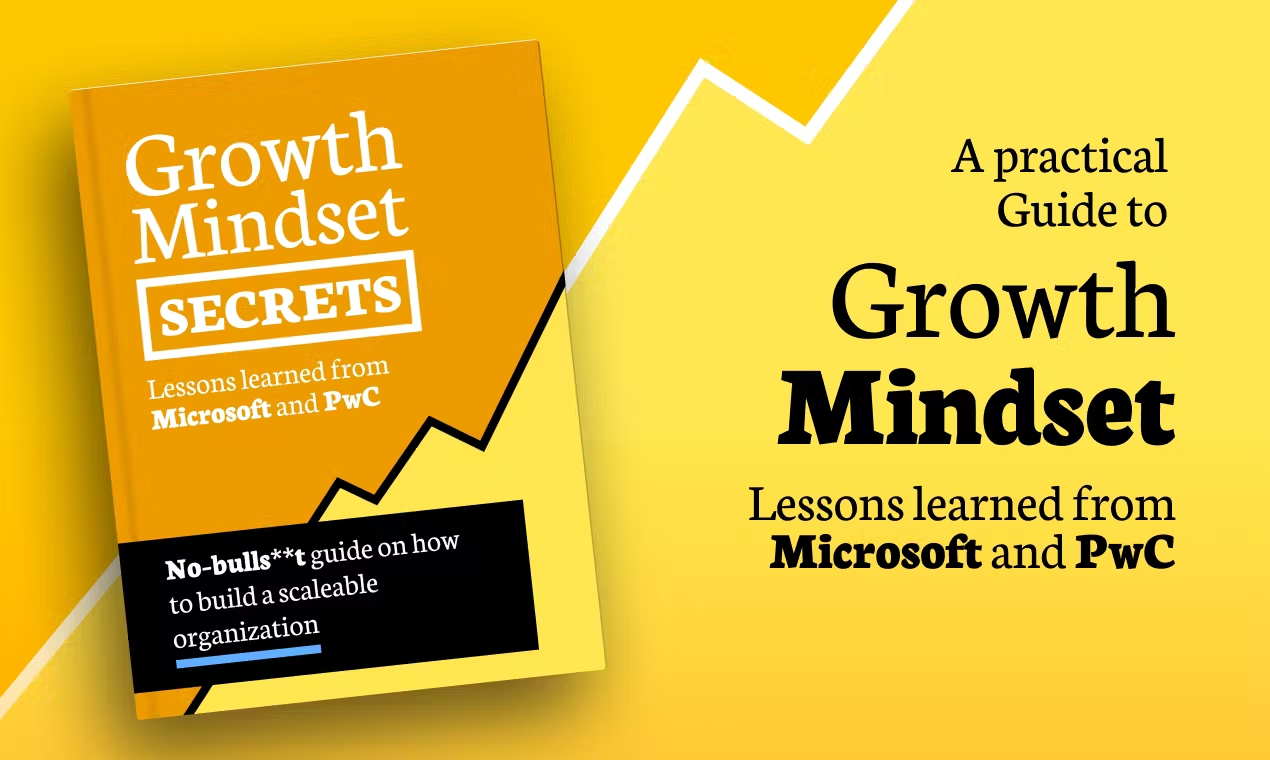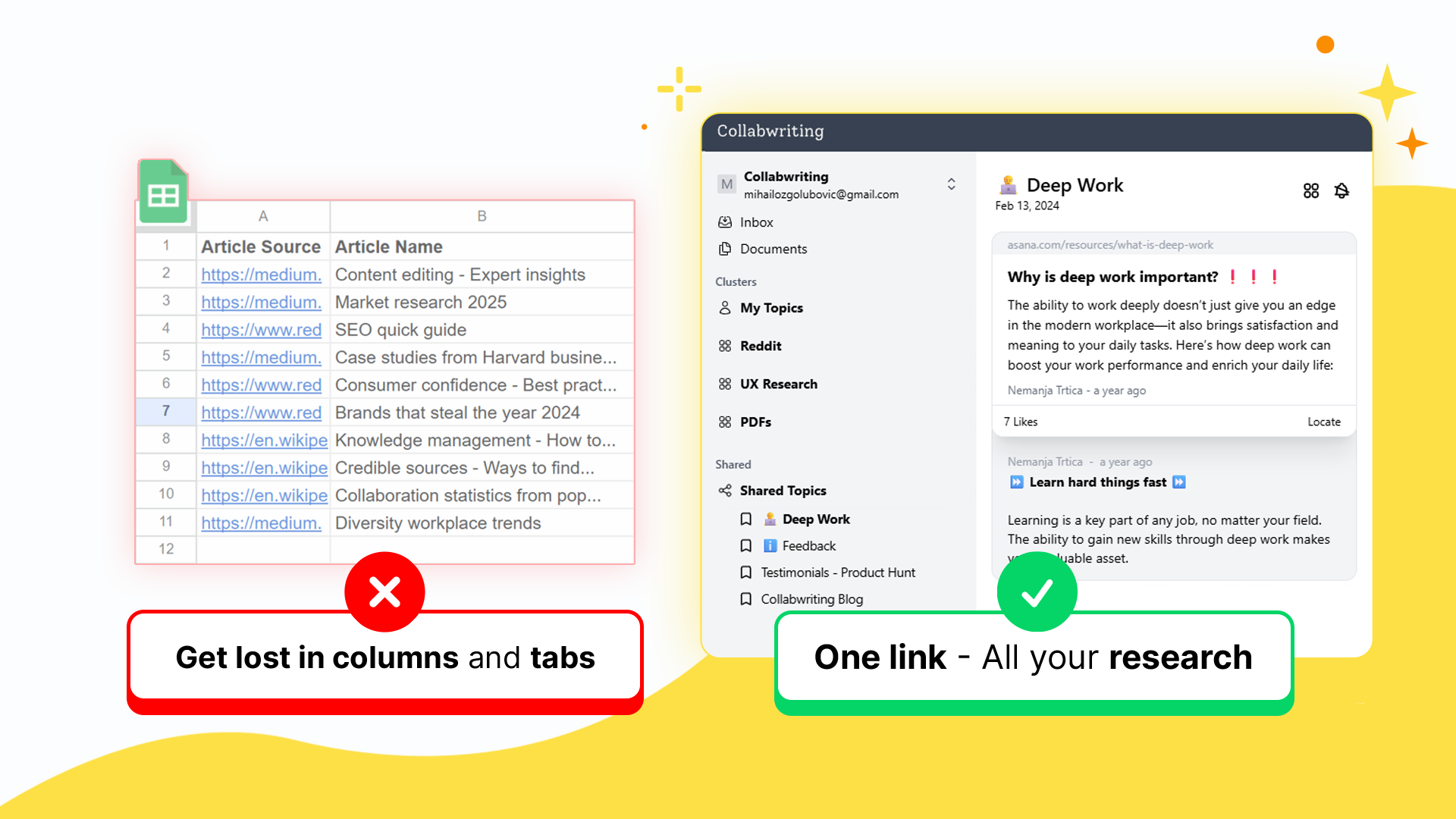Imagine working in an environment where everyone focuses on personal and professional growth. In this setting, people view challenges as opportunities, and they see failure as a stepping stone to success.
Sounds like a dream workplace, doesn't it?
The good news is that you can create this kind of culture in your workplace by cultivating a growth mindset.
In this blog post, we’ll explore the transformative power of a growth mindset and how it can help you and your colleagues achieve success at work. We’ll also discuss the differences between fixed and growth mindsets and share practical tips for shifting your mindset to develop a winning attitude.
Whether you're a manager looking to motivate your team, or an employee seeking to improve your skills and career prospects, this post is for you.
What the heck is a Growth Mindset?
A growth mindset is all about believing in yourself and your potential to improve. It's about embracing challenges and seeing them as opportunities to learn and grow.
This concept was introduced by renowned psychologist, Professor Carol Dweck, who discovered that our beliefs about our abilities have a significant impact on our success in life.
In her groundbreaking book, Mindset: The New Psychology of Success, Dweck explains how adopting a growth mindset can transform your life and career. People with a growth mindset don't see their talents and intelligence as fixed, but rather as something they can develop through dedication and perseverance.
So, if you want to achieve more and reach your full potential, it's time to ditch the fixed mindset and embrace a growth mindset at your workplace. With the right strategies and support, you can overcome any obstacle and create the best version of your team.
Why a Fixed Mindset is the Enemy of Success
One of the biggest differences between the two mindsets is how they approach challenges. Fixed mindsets can create a sense of helplessness and a fear of failure, while growth mindsets view challenges as opportunities to learn and grow. They embrace challenges and approach them with a sense of curiosity and a willingness to learn.
A fixed mindset is like a cage that limits our potential, while a growth mindset is like a key that unlocks new possibilities and opportunities.
People with a fixed mindset believe that their abilities and qualities are fixed traits that can't be changed, whereas those with a growth mindset see their potential as limitless and believe that they can develop their skills and talents through hard work and learning.
Another significant difference is how they view failure.
A fixed mindset sees failure as proof of a lack of innate ability, whereas a growth mindset sees it as an opportunity to learn and improve. They understand that mistakes and setbacks are a natural part of the learning process and use them to become even better in the future.
In short, adopting a growth mindset can help us unlock our potential, embrace challenges, and achieve our goals by believing in our abilities and constantly striving to improve ourselves.
The Benefits of Working in a Growth Mindset Organization
Regarding leaders in the workplace, there are two types of people: those who believe in fixed abilities, and those who believe in growing them.
The former tends to focus on their ego, bragging about how smart they are, and putting others down. They don't take the time to coach or develop their employees, and they blame others for their failures. In short, they are not the kind of people you want to work with.
On the other hand, these individuals create a learning environment that empowers their employees. They focus on developing critical thinking skills, seek feedback to learn from criticism and invest in their team’s growth. They believe anyone can improve with the right strategy, determination, and persistence. These leaders inspire and motivate their teams to reach new heights.
And the impact of this mindset on employees is profound.
Those who work at companies with a growth mindset are 65% more likely to say their company promotes risk-taking and 49% more likely to say their organization fosters innovation.
In growth mindset organizations, leaders support their employees, encouraging them to commit and take on challenges. Employees work harder and keep going, becoming better learners and valuable team members.
If you want to grow in your career, look for leaders with a growth mindset. They will help you become your best self!
Empowering Your Employees
When teams have the freedom to learn, they become more engaged in their work. They take ownership of their tasks and feel proud of their achievements. This is why creating a supportive work culture is essential.
Practical Ways to Encourage a Growth Mindset
Questions to consider:
- As a manager, have you thought about how you can encourage a growth mindset among your employees?
- What specific actions can you take to help them develop new skills, such as coaching and mentorship?
- How can you prioritize hiring individuals who prioritize learning and growth over innate talent?
- In what ways can you foster collaboration, open communication, and knowledge sharing within your team?
- What steps can you take to promote a culture of continuous learning rather than a desire to appear intelligent?

Growth Mindset - Lessons learned from Microsoft and PwC
PwC and Microsoft use growth mindset strategies for success, including leadership commitment, communication, learning programs, collaboration, and more.
Powerful strategies to promote a growth mindset
With these proven tactics, you can help your employees build new skills through coaching, hire those who value learning over talent, encourage effective team collaboration, promote knowledge sharing and open communication, and drive your team's potential to new heights.
Encourage learning opportunities: Provide training sessions, workshops, and other opportunities for employees to learn new skills and knowledge. Encourage them to attend conferences, webinars, and seminars to gain exposure to new ideas and perspectives.
Provide regular feedback: Feedback is critical to growth, so make sure to provide regular feedback to your employees. Encourage them to seek feedback from others and provide them with the necessary resources to improve their skills.
Emphasize effort over talent: Praise employees for their effort and hard work, rather than just their natural talents or abilities. This encourages a culture of hard work and persistence, which is essential for growth.
Celebrate mistakes: Encourage your team to take risks and embrace failure as an opportunity to learn and grow. Make sure to celebrate the lessons learned from failures and use them to improve processes and strategies.
Model a growth mindset: As a manager, it's essential to model a growth mindset yourself. Be open to feedback, willing to take risks, and embrace learning opportunities. This will encourage your team to do the same.
Final thoughts
Are you ready to take your career to the next level and find more fulfillment in your work?
As a leader or manager, you have the power to create a workplace culture that values learning, innovation, and collaboration by promoting a growth mindset.
But don't forget, developing a growth mindset starts with personal reflection and a willingness to embrace challenges and failures as opportunities for growth.
By fostering a growth mindset within yourself and your team, you'll not only achieve greater success and satisfaction in your work, but you'll also create a positive and supportive workplace culture that benefits everyone.




![Best Research Collaboration Tools in 2025: Zotero, Paperpile & Collabwriting [Compared]](/content/images/2025/07/image--7--1.png)








